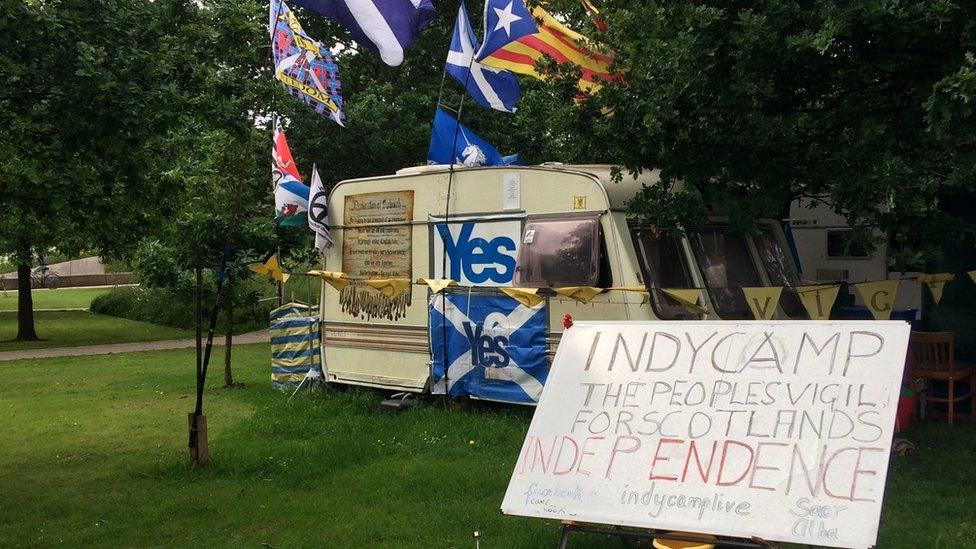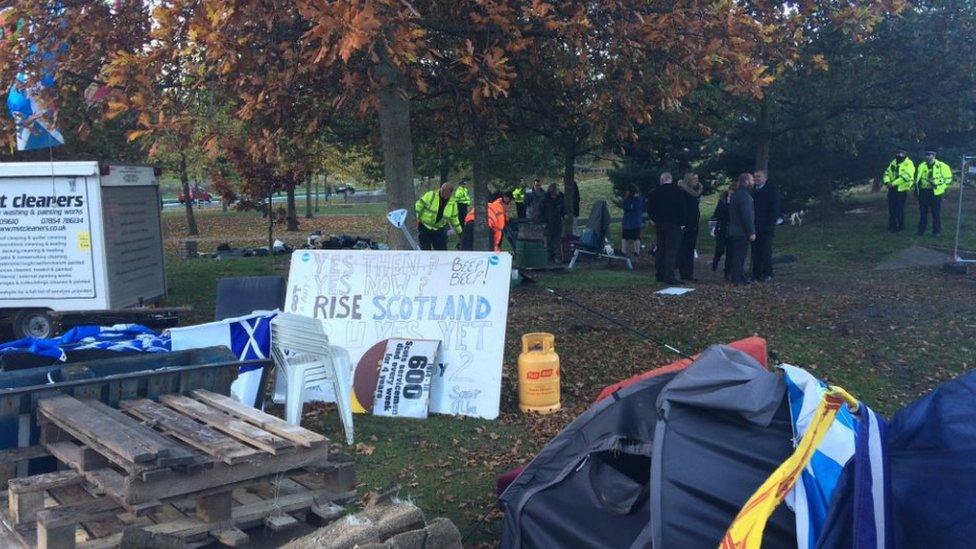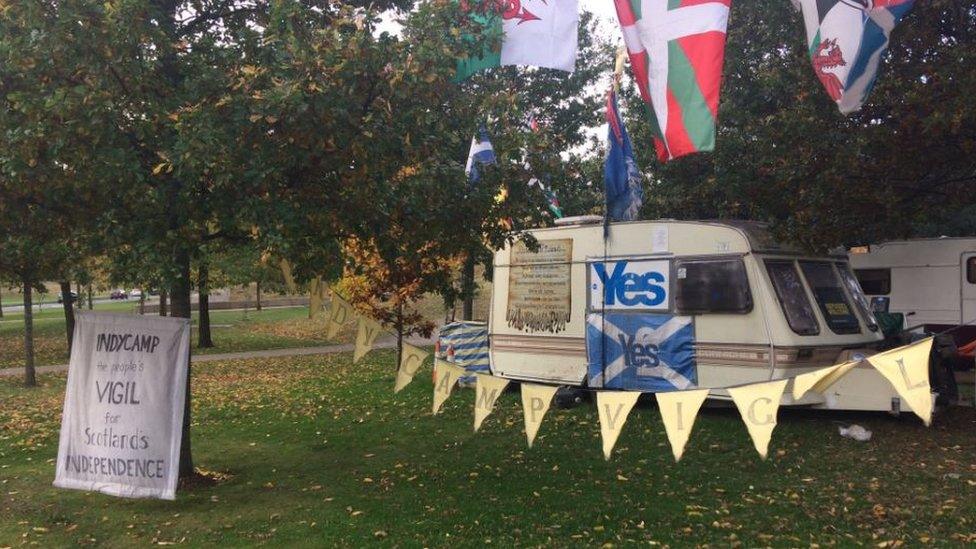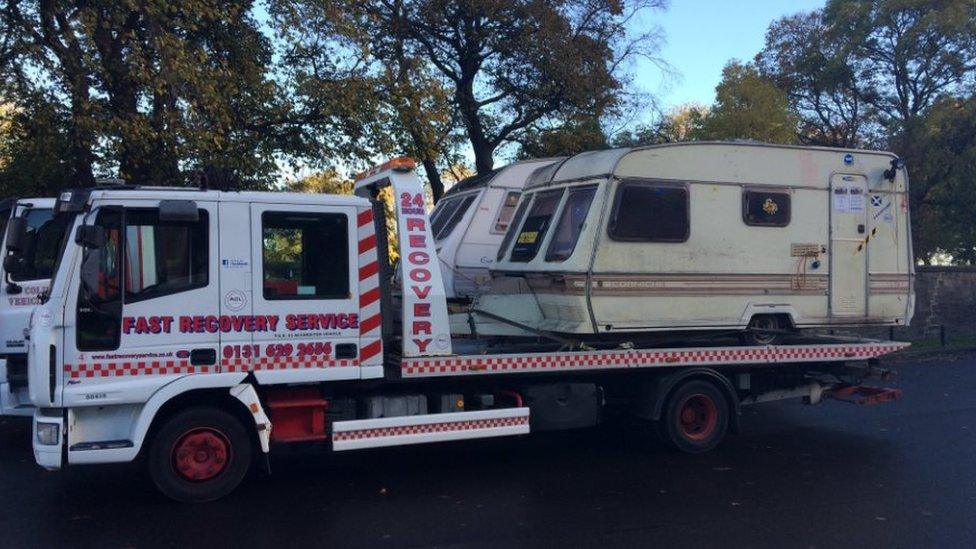Scottish Parliament abandons IndyCamp legal costs chase
- Published

The independence camp was set up in November 2015
The Scottish Parliament has decided not to pursue independence campaigners who were evicted from a camp outside Holyrood for court costs.
The IndyCamp group was evicted from the parliamentary estate in November 2016 after a year-long legal battle.
The parliament's total expenditure on the case has risen to about £128,000.
However, Holyrood's corporate body concluded that it "would not be cost effective" to continue chasing the campers through the courts.
Lawyers had advised that continuing the case could have taken up to a year and cost a further £35,000.
The IndyCamp was set up outside Holyrood in November 2015, with the group stating their intention to remain in place until Scotland becomes independent.
However, the Scottish Parliamentary Corporate Body (SPCB) ordered them to leave, saying they were camping without permission, taking up space others could be using and endangering the political neutrality of the Holyrood estate.
IndyCamp protestors evicted from Scottish Parliament land
Lord Turnbull ruled against the group in the summer of 2016 after a lengthy legal battle, and his decision was subsequently upheld by the Inner House.
The campers applied for leave to challenge that ruling in the Supreme Court, but this was also rejected.
The group were ordered to pay costs for the case, which at that point had already risen into six figures. Had parliament pursued the case, a diet of taxation would have been held to determine how much the nine respondents in the case would have had to pay.
The SPCB had a firm of sheriff's officers carry out "non-intrusive" investigations into the financial footing of the respondents, and they were "not able to identify significant assets", concluding that "the prospects for recovery are negligible".
Legal precedent
The parliament's report, external said that they had "sought to act reasonably and proportionately" throughout the case, and noted that the SPCB "has a clear duty to use public funds prudently".
It said it would be "irresponsible to spend further money on recovery action when such action was unlikely to result in any funds being recovered".
The group did note that the case could provide precedent for any future legal actions involving unauthorised camping on the parliamentary estate, meaning future cases "would be both faster and cheaper".
A spokesman for the Scottish Parliament said: "The SPCB has a clear duty to use public funds prudently and therefore to seek to recover the cost of this court action where viable.
"However it has now become clear that the prospects for recovery are negligible. The SPCB has therefore concluded that it is not cost effective to spend further public funds in pursuing the matter."
- Published10 January 2017

- Published16 December 2016

- Published4 November 2016
